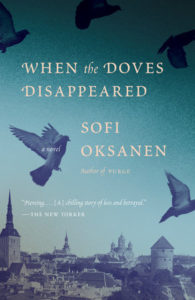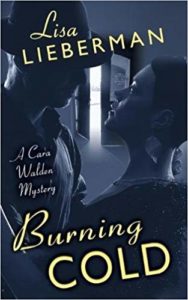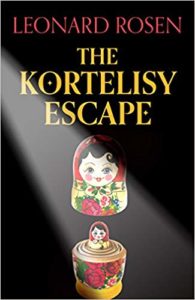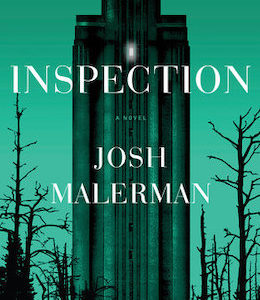The crime novel has always sought the shadows, and in Eastern Europe it doesn’t have to go very far to find them. And the biggest shadow—the virtually engulfing one—is the shadow cast by history itself. How could we expect anything else when so many Eastern European countries, after desperate struggles to defend themselves, nevertheless ended up the hollowed-out pawns of fascistic governments—some of them suffering not one, not two, but three successive hostile occupations. Such lengthy and brutal cultural trauma doesn’t just disappear. Crime novels set in Eastern European can’t help but stand in some relation to the region’s history, attesting to the truth of Faulkner’s observation, “The past is never dead. It’s not even past.”

When the Doves Disappeared, by Sofi Oksanen
In 1941, two Estonian cousins flee from the Red Army. The first, Roland, goes into hiding; the second, Edgar, transforms himself opportunistically into a Nazi. Now switch to 1963. Estonia is once again occupied by the Soviets, and Edgar is masquerading as a Communist official, hoping that his prior loyalty won’t come to light. But Roland and Edgar’s ex-wife, Juudit, know the truth. There’s a crime in the novel, and the plot is as taut and suspenseful as that of any good thriller, but the book’s real power lies in Oksanen’s nuanced social tapestry, her penetrating study of her characters, and her unflinching look at the human costs of occupation.
Drive Your Plow Over the Bones of the Dead, by Olga Tokarczuk
Men are being murdered in a small village in Poland, and it is up to Janina Duszejko, retired schoolteacher, to find the killer. This classic crime plot is the durable vehicle through which the brilliant Tokarczuk (winner of the 2018 Man Booker International Prize for her novel Flights) develops the eccentric voice of Janina, who praises animals, astrology, and William Blake as she questions the point of existence. What you feel from the title—a certain bottomed-out bluntness—is the spark of Janina’s comic cynicism. Is her outlook despairing, resigned, or revelatory? She doesn’t know either. She’s just working with what the wrecking ball of Polish history left behind.

The Spy who Came in from the Cold, by John Le Carré
The classic Cold War spy novel that captured the moral exhaustion of the Cold War era, and set the standard for espionage novels to come. Alec Leamas, on the cusp of retirement from MI6, is persuaded to do one last mission: fake his defection in order to frame his East German handler as a double agent. A lesser novelist would have considered that plot twisty enough, but that’s just a warm-up act for Le Carré, for whom the first betrayal is never the last.

Burning Cold, by Lisa Lieberman
American singer Cara Walden, accompanied by her brother and new husband, ventures into Budapest to find her lost half-brother, Zoltan. It’s 1956, the height of the Hungarian Revolution, and the trio encounter violence and betrayal at every turn. Their journey becomes a crash course in lethal politics and survival strategies. By the time they catch up with the slippery Zoltan, they’ve questioned the very premise of their trip, only to discover deep personal ties to the region and to perceive the new roles they must adopt to build a bridge between the two halves of their divided family.

The Kortelisy Escape, by Leonard Rosen
Curmudgeon Nate Larson is let out of jail in exchange for testimony against his brother, Dima. He has no intention of providing such testimony; instead, he plans to use his bartered freedom to rescue his granddaughter, Grace, from an abusive foster care system, school her in the arts of magic, and stage his own flight to Canada, thus saving Dima from prosecution. The Kortelisy Escape is the name for Nate and Grace’s climactic magic trick, but it also refers to Nate and Dima’s childhood in the Ukrainian town of Kortelisy, and what happened to them there in 1942 to make their bond unbreakable. As immigrants in America, the brothers are in many respects out of place and time: their searing formative experience is opaque to those around them, their wisdom untranslatable. Nate must struggle to create worthy destinies for his tattered family in an adopted land of shallow greed and casual exploitation where his brother’s heartfelt work has been usurped by common criminals.


















